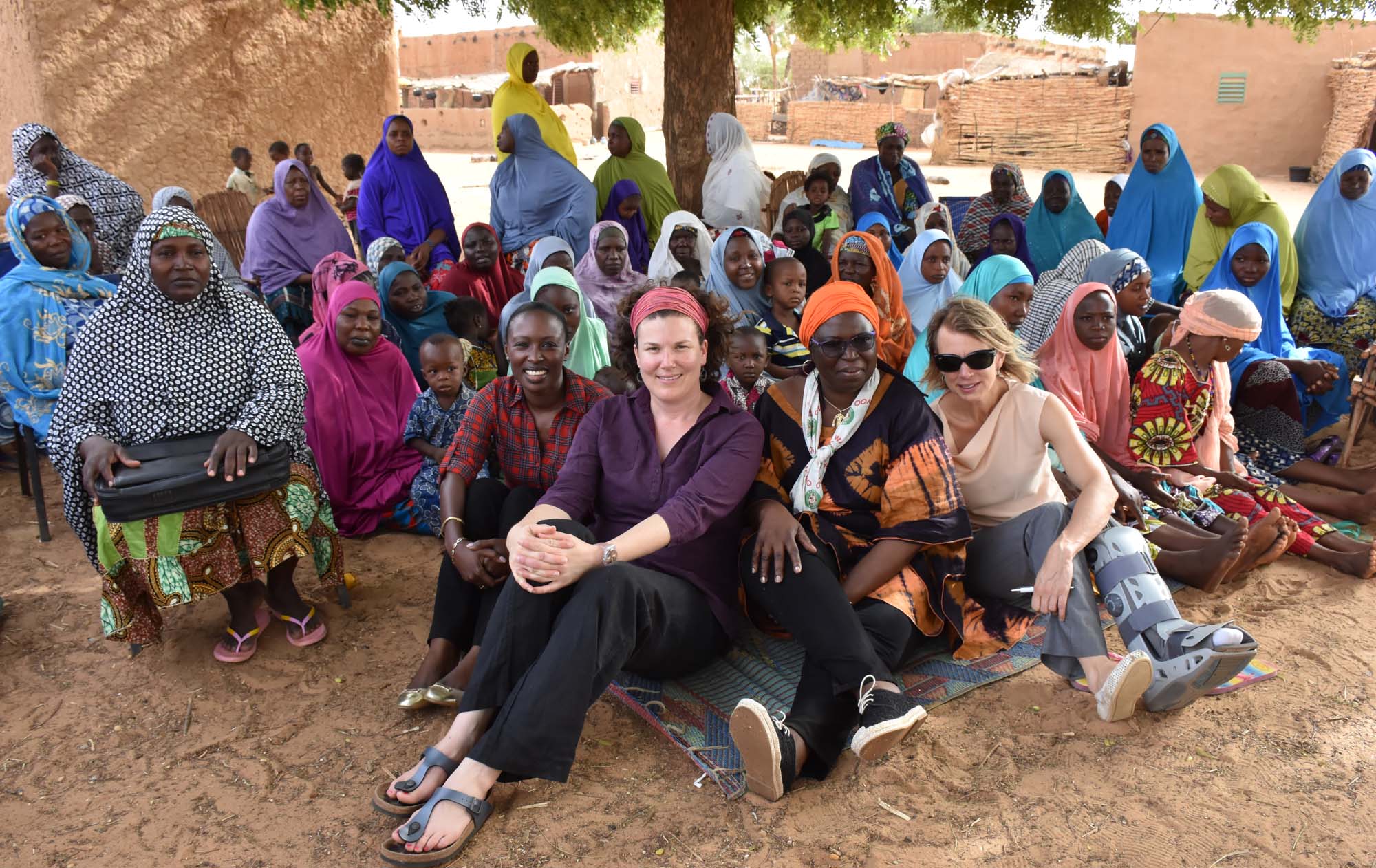The Ouagadougou Partnership Donors’ caravan started this Monday, May 22, 2017 in Niamey, Niger, the first leg of a visit that will also take donors to Burkina Faso and Benin. Niger is one of the OP countries where the needs for contraception and family planning are the most important. It’s the country with the highest fertility rate in the world with 7.6 children per woman. Niger authorities are aware of the urgency to act and have set the ambitious goal of achieving a 50% modern contraceptive prevalence rate (mCPR) by 2020 for married women. According to TRACK 20 data, Niger’s mCPR is currently 13% and will be 15.3% by 2020, if the current trend is maintained.
It’s in this context that the donors’ delegation, consisting of representatives from the Gates and Hewlett Foundations, USAID, the Kingdom of the Netherlands, France, Canada, the World Bank and many others, begins its visit. The purpose of the visit is to listen to stakeholders in Niger on their progress and challenges, to make field visits to see FP services in action, and to advocate for more investments in FP.
Monday morning was devoted to field visits. Caravan participants were divided into three groups to allow for diversity of experiences. The first group went to see four levels of the health care pyramid in Niger, namely the Timéré DBC, the Saga Gourma case de santé, the Saguia CSI and the Gaweye Niamey District 5 District Hospital. The second group visited the Clinique de la Cité, a PSI franchise, the ANBEF Family Wellness Clinic and the CSI Yantala Haut. The third group visited a youth center in Talladjé, Marie Stoppes International (MSI) clinic and the INS/PMA2020 workshop at the Oasis Hotel.
OP donors were able to see what is being done in terms of family planning services and demand creation. They listened to providers, health care workers and service recipients. These exchanges were often frank, honest and informative.
In the afternoon, the delegation met with ministry officials, parliamentarians and civil society. A group met with the Minister of Population, Mrs Kaffa Jackou Rakiatou Christelle. Officials from the Ministry of Health were also present. The Minister made a brief presentation on family planning in Niger, stressed the commitment of the President of Niger to capture the demographic dividend, but also the challenges faced by Niger. She also spoke about the Sahel Women Empowerment and Demographic Dividend (SWEDD) and its aspects related to family planning, nutrition and the empowerment of girls and women in Niger. Perri Sutton from the Gates Foundation, spokesperson for donors, thanked Niger officials and advocated for the access of young women to contraceptive services.
A second group visited the National Assembly to discuss the lack of an appropriate legislative framework for reproductive health and family planning. Discussions focused on the content of the bill on the protection of school age girls, including the legal age of marriage and the relevance of family planning in Niger. The wish of donors is that Niger can quickly pass this law, an important condition to achieving the objectives of the national family planning action plan.
Finally, a third group met with civil society organizations (CSOs). This was an opportunity for young people and other CSO members to present directly to donors their contribution to the repositioning of FP, but also the problems they face. Donors took notes and in turn invited CSOs to fully play their role in advocating for FP in the country.

